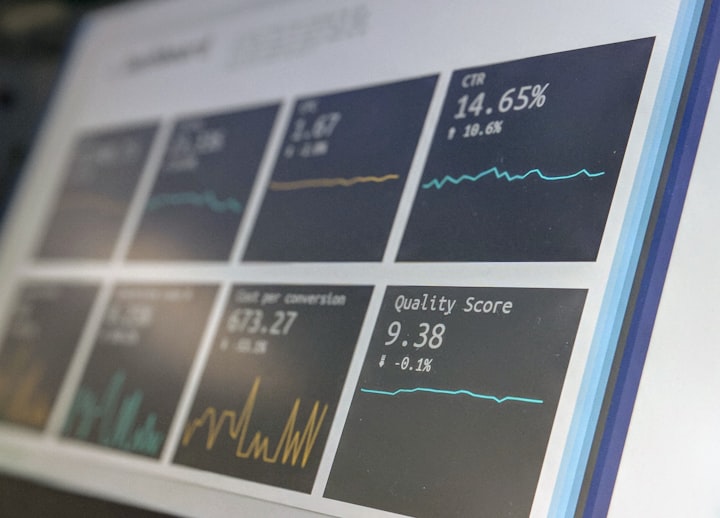What Do You Need To Know Before Google's First-Mobile Index Deadline
A blog post with tips and tricks on how to optimize your site ahead of the upcoming deadline.

If you're a website owner, you've probably heard that Google is switching to a mobile-first index. This means that the search engine will now prioritize mobile versions of websites when determining rankings. So if you haven't already made your site mobile-friendly, you need to do so ASAP! In this article, we'll give you an overview of what you need to know about the mobile-first index and how to prepare your site for the switch.
What is Google's Mobile-First Index?
Google's Mobile-First Index is an algorithm that ranks mobile-friendly websites higher in search results. It's part of Google's larger push to make the web more mobile-friendly, and it's something that all website owners should be aware of.
The Mobile-First Index is different from Google's standard index in that it looks at a website's mobile version first, rather than the desktop version. This means that if your website isn't optimized for mobile devices, you could be at a disadvantage in the search results.
If you're not sure whether your website is ready for the Mobile-First Index, you can use Google's Mobile-Friendly Test tool to check. If your website passes the test, then you're in good shape. If not, then you'll need to make some changes to ensure that your site is mobile-friendly.
Making your website mobile-friendly can seem like a daunting task, but there are a few simple things you can do to get started. First, make sure that your website is responsive, meaning that it automatically adjusts to fit any screen size. Second, use large font sizes and clear buttons so that visitors can easily click on what they're looking for. Finally,
Why is Google Making this Change?
Google is making the change to a mobile-first index because more and more people are using mobile devices to access the internet. In fact, Google says that over 60% of searches are now done on mobile devices.
This change will impact how Google ranks websites in its search results. For example, a website that is not optimized for mobile devices may be ranked lower than a website that is designed for mobile devices.
Google is making this change to make sure that its search results are relevant for the growing number of people who are using mobile devices to access the internet.
What does this Mean for Your Website?
Google's mobile-first index is a big change for the way the internet is accessed. It's important to make sure your website is ready for this change. Here's what you need to know about Google's mobile-first index and how it will affect your website.
- Your website needs to be mobile-friendly. This means that your website needs to be designed for mobile devices. You can't just have a website that looks good on a desktop computer and expect it to work on a mobile device. Your website needs to be designed specifically for mobile devices.
- Your website needs to be fast. Mobile users are impatient. They expect websites to load quickly, even on slow connections. If your website is slow, they'll move on to another site.
- Your website needs to be easy to use. Mobile users are used to using touch screens, not keyboards and mice. Your website needs to be easy to navigate with a finger or thumb.
- Your content needs to be easy to read. Mobile users are often looking for quick information, not long articles. Make sure your content is easy to scan and understand at a glance.
Google's mobile-first index is a major change in the way the internet is
How to Prepare for Google's Mobile-First Index
As we all know, Google is constantly changing and updating its algorithms. This can be a big headache for website owners and developers who have to scramble to keep up. The latest change on the horizon is the mobile-first index. This new index will give priority to websites that are optimized for mobile devices.
The deadline for the mobile-first index is fast approaching. If your website is not ready, you could see a big drop in your search rankings. Here's what you need to do to prepare for the mobile-first index:
- Make sure your website is responsive. This means that it should look good and work well on all devices, including smartphones and tablets.
- Pay attention to your page load times. Mobile users are often impatient and will not wait around for a slow website.
- Use Google's Mobile-Friendly Test tool to check if your website is ready for the mobile-first index.
- Make sure your content is high-quality and relevant. This has always been important for SEO, but it will be even more important with the mobile-first index.
- Monitor your website's performance after the mobile-first index goes into effect
Conclusion
With the mobile-first index deadline looming, it's important to make sure you're prepared. This means having a mobile-optimized website that is easy to navigate and provides a great user experience. It also means having quality content that is tailored for mobile users. If you're not sure where to start, our team of experts can help you get your website up to Google's standards. Contact us today and let us help you take your business to the next level
About the Creator
Helen Siswanto
Helen Siswanto is a freelance writer experienced in Digital Marketing for 2-years, and Financial Management for 4-years. She owns the website Good Health & Well. She really wants to be a writer, and now she's making her dreams come true






Comments
There are no comments for this story
Be the first to respond and start the conversation.